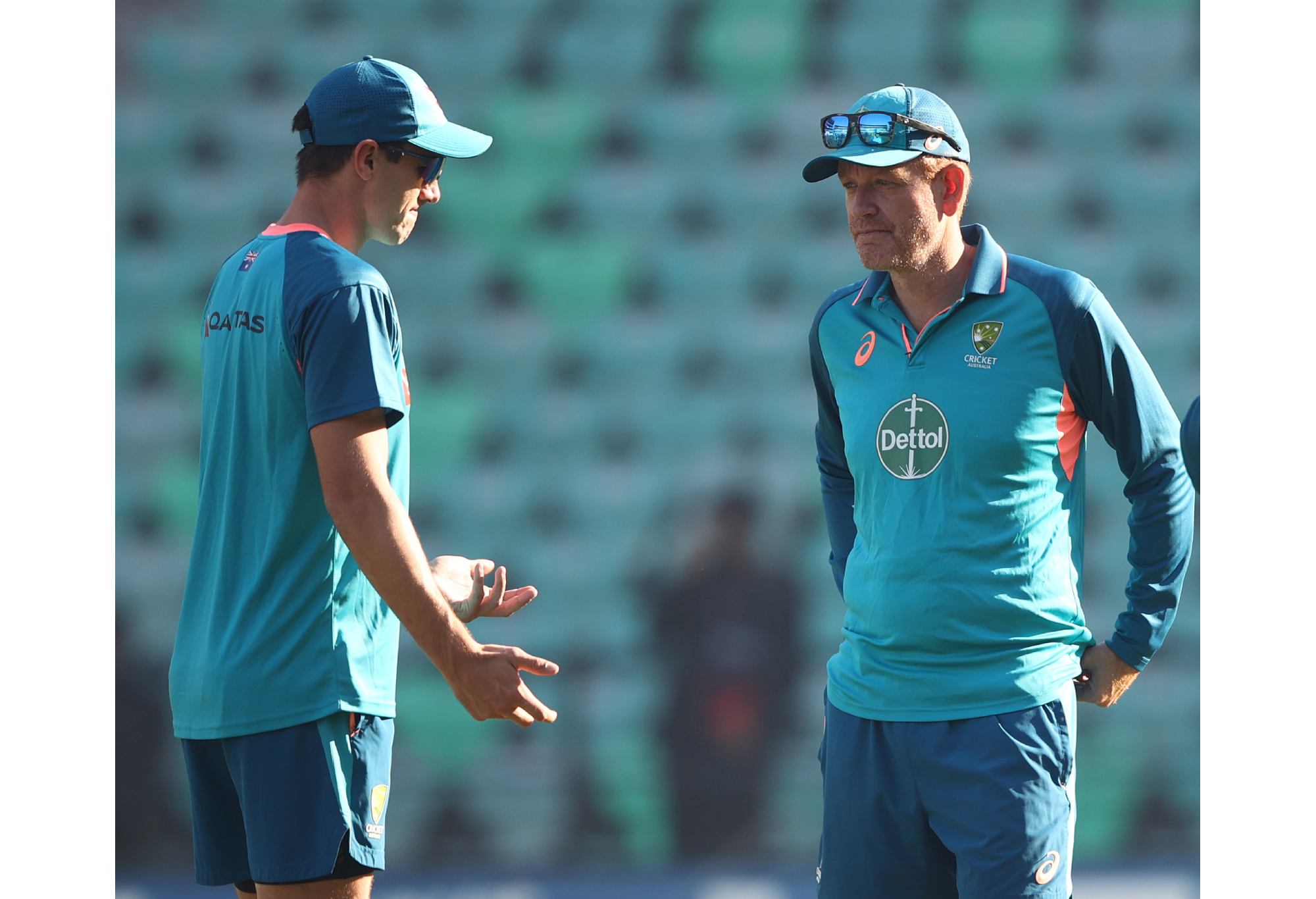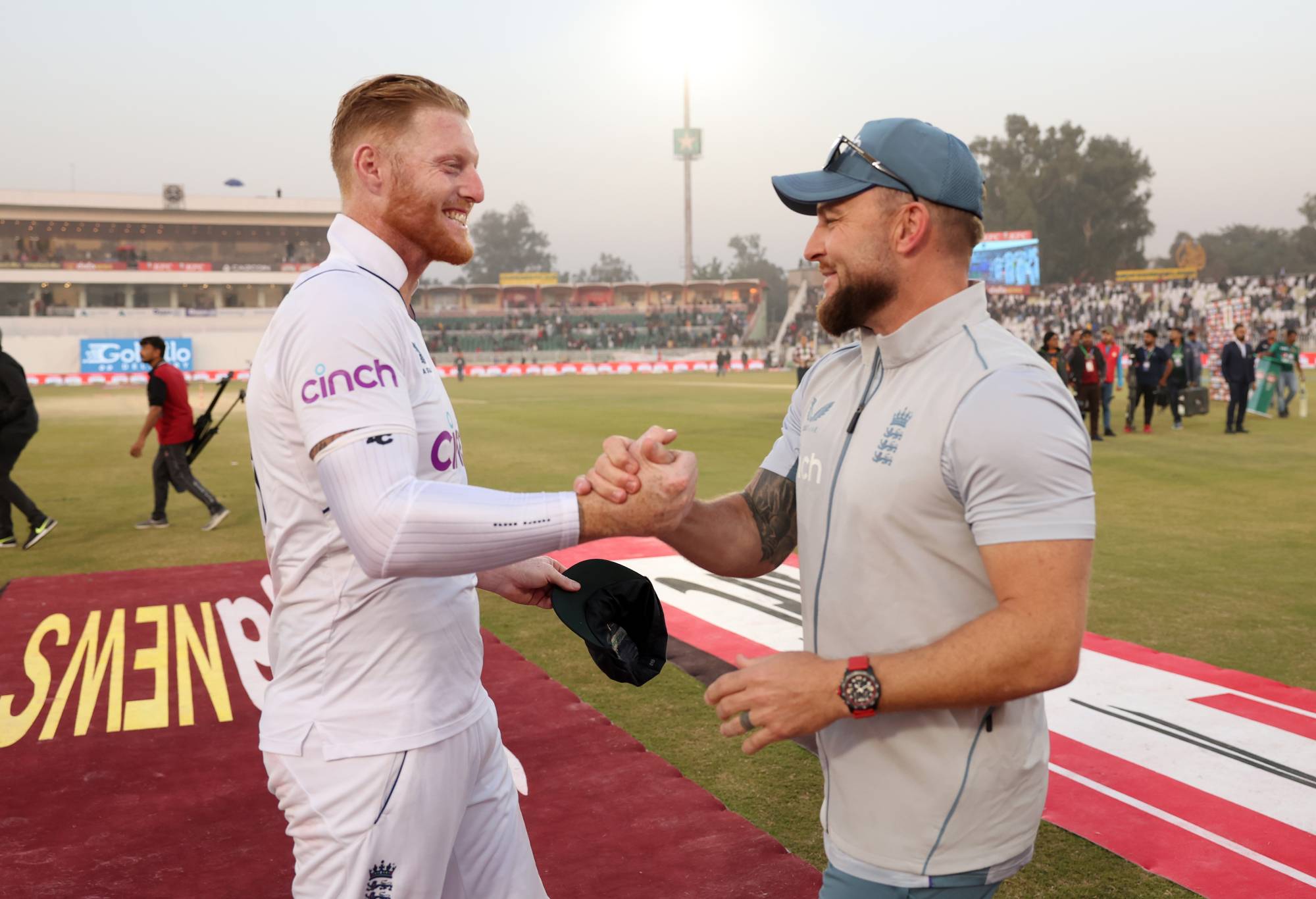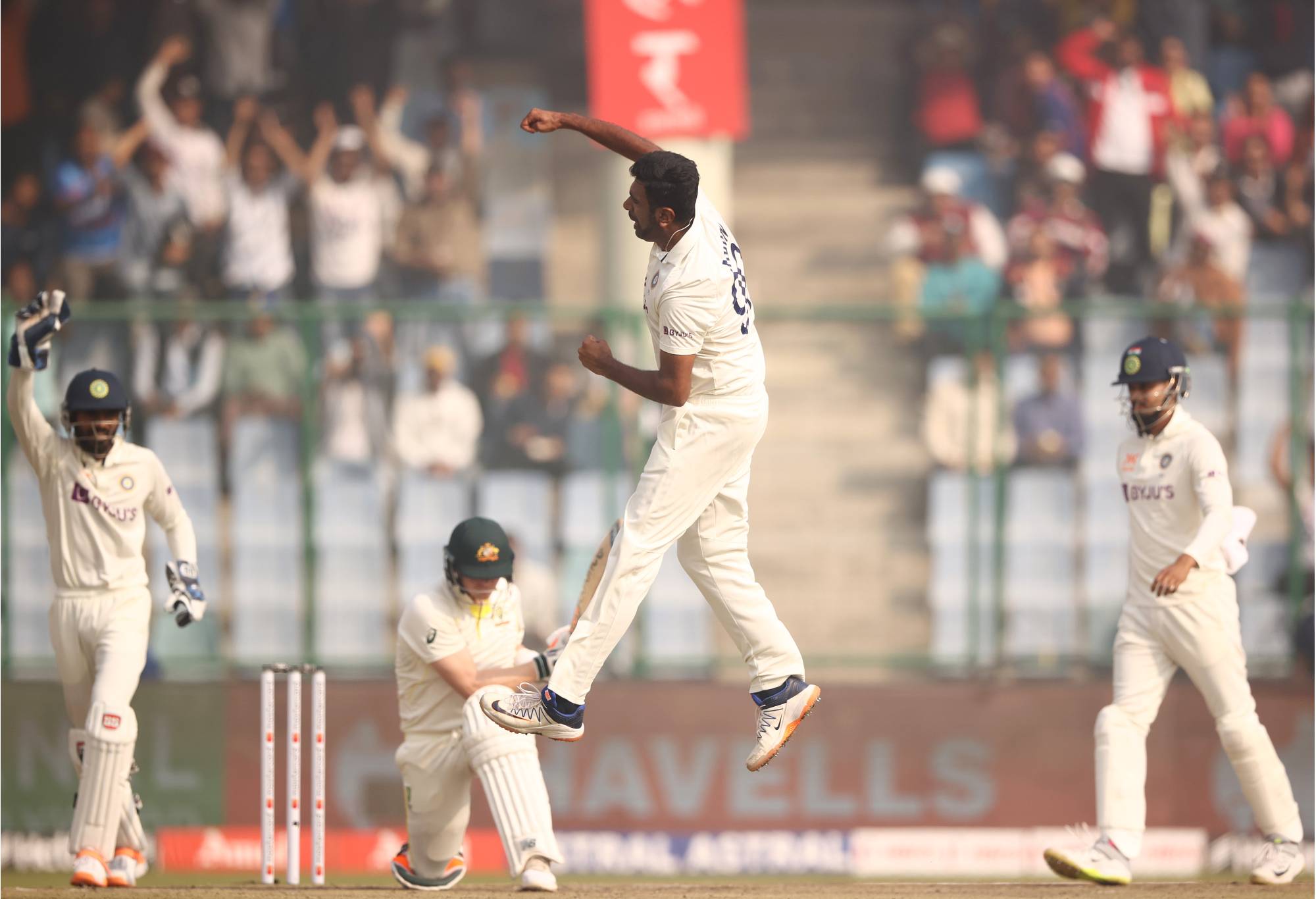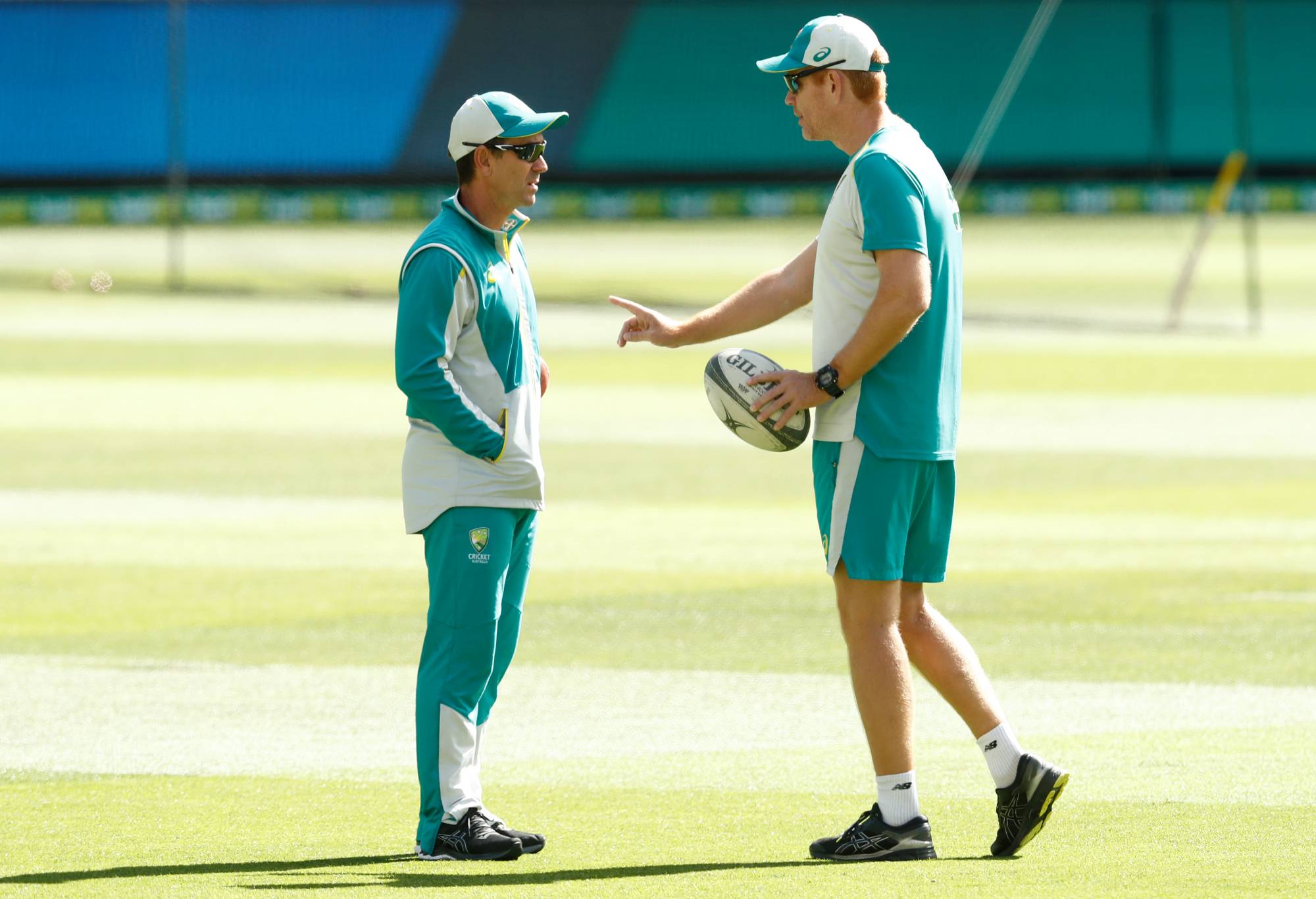There is a distinct lack of experience in the three key roles of captaining, coaching and selecting the Australian cricket team but that is no excuse for the Delhi self-destruction.
And before any Justin Langer fans come crawling out of the woodwork, the second Test capitulation doesn’t mean he should have been reappointed as coach last year.
Cricket Australia does need to wear some of the blame for a situation where the people in the three most important roles in the organisation’s quest to become the top-ranked team in the world in all three formats have 18 months or less experience in their position.
Pat Cummins was appointed Test skipper at the start of the 2021-22 summer without ever leading a team at first-class level and now has the one-day captaincy as well – surely CA won’t burden him with the T20 role as well now that Aaron Finch has finally decided to call it quits.
Coach Andrew McDonald is less than a year into his first stint as a national coach after Langer’s abrupt departure after cutting his teeth on the English county scene in 2014 before returning home to lift trophies with Victoria and the Melbourne Renegades.
CLICK HERE for a seven-day free trial to watch the Tour of India on KAYO
And, as coach, he is also in the selection panel, George Bailey has only been chief selector since August 2021 when Trevor Hohns departed. The former Australian white-ball skipper had only joined the three-man committee the previous year.

Pat Cummins with coach Andrew McDonald during the India tour. (Photo by Robert Cianflone/Getty Images)
The other selector, ex-Test all-rounder Tony Dodemaide, came on board a couple of months after Hohns left after decades as an administrator with the MCC, WACA and Victoria rather than choosing teams.
While Bailey is in Australia at the moment, Dodemaide is on tour in India, attracting criticism for appearing too close to the players after being seen around the team during matches and training sessions.
It’s a difficult balance for a touring selector – they need to be present but should be at arm’s length otherwise the perception will be that they can’t make a tough selection decision if they’re too friendly with the squad members.
Experience is not the be-all and end-all of professional sport – Brendon McCullum taking over as England coach with first-time captain Ben Stokes have proved that, revolutionising the five-day format with their crash and bash “Bazball” approach which claimed another victim in New Zealand on the weekend.
The new England era is being overseen by another newbie in Rob Key, who was appointed managing director despite primarily being a commentator after retiring as a player with only limited experience in administration.
Their emphatic victory over the Black Caps was their 10th win in 11 Tests which is a truly remarkable turnaround for an English team which left Australian shores early last year after an embarrassing 4-0 pasting and then lost another series to the West Indies in the Caribbean, pre-empting Joe Root’s resignation as skipper.

(Photo by Matthew Lewis/Getty Images)
Cummins took over the Test captaincy in unusual circumstances – less than a fortnight before the Ashes series due to Tim Paine’s off-field indiscretions – but for the most part, has excelled in the role.
The Ashes were a cakewalk, he united with McDonald to grind out a 1-0 series win in Pakistan in the 15th session of the three-match series, there was a slight slip-up in Sri Lanka but a 1-1 result was a par mark and then comprehensive victories over weakened Windies and South African sides in the recent home summer.
It’s not their fault that their opponents were barely of Test standard but the lopsided series at home did little to prepare Australia for India.
The Aussies then decided to hold their own pre-tour spin camp at home on specially prepared pitches to adjust to Indian conditions rather than trust the BCCI, which has a history of rolling out seaming wickets and medium-pacers for warm-up games to give touring teams a virtually pointless lead-in to the first Test.
Cummins, McDonald and the selectors got their line-up wrong in the first match of the Border-Gavaskar Trophy series in Nagpur by dropping the in-form Travis Head, persisting with struggling opener David Warner and throwing Matt Renshaw into the middle order.
The batters were too passive and paid the price for being slow with their footwork.
They rectified some of those mistakes by recalling Head in the second Test but stuck by Warner despite overwhelming evidence to the contrary that he’s been out of form for the best part of three years and is a shadow of his best on Indian wickets.
Aside from Warner again failing in the first innings and then being ruled out of the second innings due to concussion protocols to give Renshaw a reprieve, the Aussies were the better team in Delhi for the majority of the first two days.
Their total of 263 was described as “not good but good enough” by India’s former coach Ravi Shastri on commentary and it proved to be accurate when the home team was 7-139 midway through day two.
Australia’s rapid demise in Delhi after being up by 80 runs with nine wickets in hand to lose by six wickets was reminiscent of England’s day-five Ashes disaster in Adelaide 16 years ago when they choked away the second Test despite putting 6(dec)-551 on the board and holding a 97-run lead, one wicket down at stumps the previous night.
There was no worse dismissal among the 9-47 collapse than Cummins being bowled after an agricultural slog first ball and it’s since been revealed he has returned home before the next Test due to a family illness.
Whether his mind was distracted because of the personal matter or due to the pressure of the situation, it was a terrible look for a leader when a captain’s knock of substance was required.
The team had just lost 4-10 in less than five overs. It was time to dig in. If he’d been dismissed playing a conservative stroke as a No.8 batter it could have been excused but his panicked shot worsened the situation and led to even more.

Ravichandran Ashwin celebrates taking the wicket of Steve Smith. (Photo by Robert Cianflone/Getty Images)
And the fact that Cummins has stumbled in his first major Test series as captain should not be a surprise or be reason to think he won’t be successful for the long haul.
Steve Waugh drew his first series as leader in Caribbean then lost in Sri Lanka, Mark Taylor began his captaincy with a pair on the way to a 1-0 loss over three Tests in Pakistan, Allan Border took years to find his groove while Ricky Ponting swept aside Sri Lanka, Pakistan and New Zealand but lost the Ashes urn in 2005 in his first heavyweight contest.
When McDonald fronted the media on Monday in a lengthy news conference, he didn’t try to shift the blame or say the team had done anything but wilt under pressure when asked about the day-three implosion.
“Pretty poor,” he said. “It’s once again pressure and, in this case, more perceived pressure than anything … It felt like at times we wanted to rush to a total … some people who went clearly away from the game plan … we failed under the examination of India.”
Throughout the presser, he did the job of the journalists and tossed up questions of his own on multiple occasions and answered them, such as “Were we clear on the way that we wanted to play them? Yes. Did we go away from that? Yes. And did we fail going away from what we had planned? Yes”.
Many questions remain unanswered about whether he can reverse Australia’s losing trend for the next two matches on tour to ensure they qualify for the World Test Championship final in June, which will likely be against India but at least they’ll have a chance because it will be in England.
He’s done the right thing by owning up to the errors but his job is to know what to do in the moment. The voice of reason amid the mayhem of a collapse.

(Photo by Darrian Traynor – CA/Cricket Australia via Getty Images)
Coaches shouldn’t over-complicate batting plans just before someone leaves the pavilion but as the wickets tumbled, he needed to step in to give the incoming batters firm instructions on what they should and what they should not be doing.
From the moment Langer resigned in disgust, it was assumed McDonald as the assistant coach would get the role as he had the support of the senior players but the most convenient option is not always the best one.
With a rookie captain and selectors with limited time in the role, a more-experienced new head coach would have been a more prudent option for Cricket Australia.
Trevor Bayliss was sounded out as part of the process and after successful stints with Sri Lanka and England, he had the proverbial runs on the board to give Australia an experienced mentor.
The position of Australian coach should be one of the most sought-after in world cricket that is earned through years of hard graft and whether McDonald has the ability to reach the high standards that are demanded is a question yet to be answered.
>Cricket News

%20(3).jpeg)



0 Comments